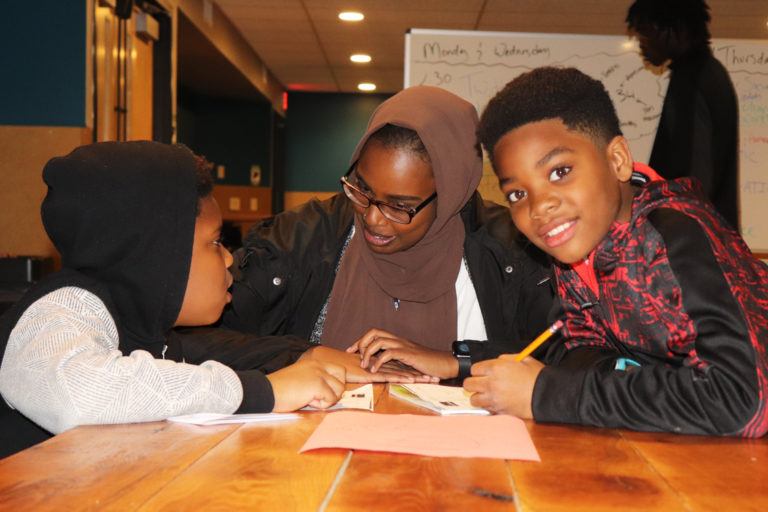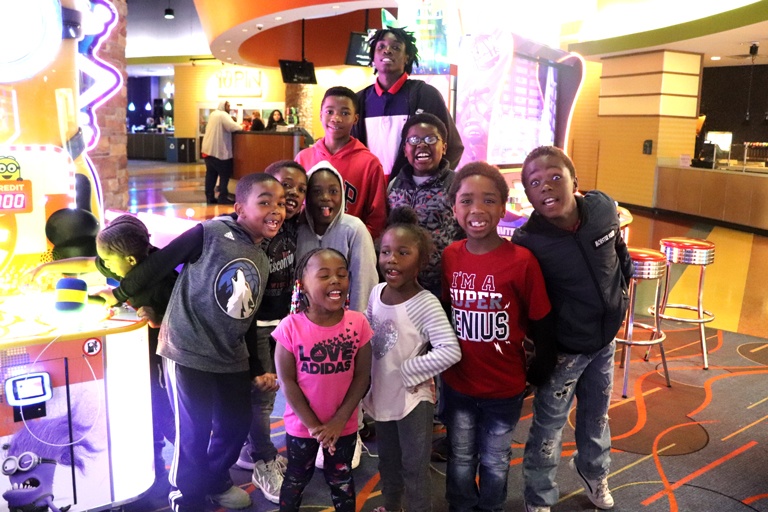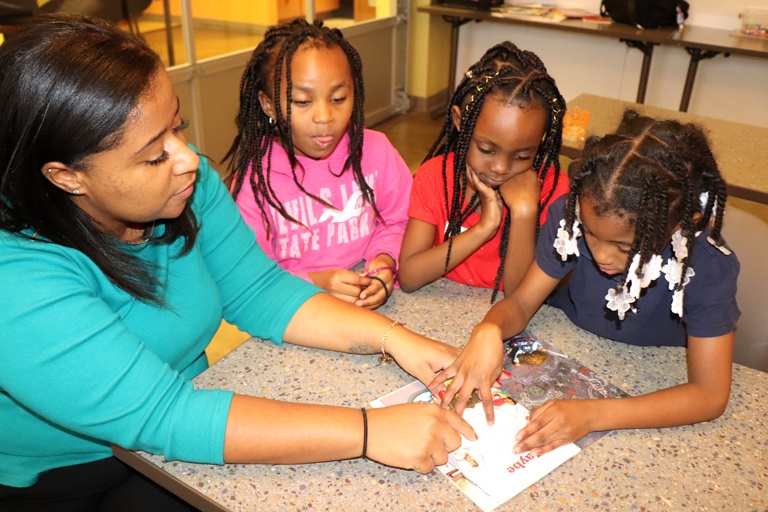ANEW BAM

Kevin Robinson was tired of how many high schoolers he was seeing locked up. As a family liaison with Minnesota’s Department of Children Services, he began to wonder how he could interrupt this pattern. He started having conversations with young people about what support they were missing. Then, in 2013 Kevin partnered with fellow St. Paul east-sider Vanessa Johnson to form ANEW BAM (Black Arts Movement).
“We’re on the front lines and know what our communities need. It might not always be formal, because a lot of time the work we do is out of love and dedication to the kids we’re serving.”
Kevin Robinson, Executive Director, ANEW BAM
“We wanted an intervention that could inspire and empower young people from a traditionally marginalized community,” said Kevin, who is the executive director of ANEW BAM. Toward that end, ANEW BAM works with K-8 youth in East St. Paul and the greater Twin Cities to develop the skills and self awareness to become change agents in their community.
Kevin says part of this work is teaching kids how to ask critical questions, which can be especially tough when they’re not taught the fullness of their own histories. “In October, we had parents calling us because the teachers were teaching about Christopher Columbus instead of the history of indigenous people on Indigenous Peoples’ Day,” said Kevin. “How do we have a conversation with the school about those white institutions that dominate narratives, without offending the teachers personally? That’s our daily work, but it’s really hard.”
Of and for the community

ANEW BAM prides itself on being of and for the Twin Cities’ African American community. All its staff is African American, as is 98% of its board. To address the gaps faced by black students, ANEW BAM believes it’s necessary to start from a place of understanding of both the strengths and nuances within the African American community, as well as the historic trauma affecting students.
Kevin and the team take a diverse approach to working with students. ANEW BAM offers a range of services, including culturally responsive pedagogy for African American students, math and literacy training, social and emotional skill development, art-infused learning, field trips, behavior intervention, and a six-week summer program. Since 2013, the nonprofit has worked with more than 2,000 students from 22 schools across the Twin Cities; 98% of its participants are African American.
Leveraging the Nonprofit Infrastructure Grant Program
ANEW BAM is one of 21 organizations from across Minnesota that received a grant from the new Nonprofit Infrastructure Grant Program. Propel Nonprofits administers the program on behalf of the Minnesota Department of Employment and Economic Development, and the Coalition of Asian American Leaders was a big advocacy partner in securing funding. The goal of the infrastructure grants was to support the missions of small, culturally led organizations by strengthening their internal operations.
ANEW BAM used its infrastructure grant to hire an associate director. This allowed Kevin time to focus on board and donor cultivation, community relationships, and other partnerships. They’ve doubled their budget in the past year.

“What I like about the Nonprofit Infrastructure Grant approach is we told you all what we needed and you funded it, versus you telling us what we needed,” said Kevin. “Propel also supported us through the process of what it means to submit receipts for reimbursement, what it means to budget, and what a cash flow projection is. If you don’t have access to institutions to learn nonprofit finance, you don’t know about cash flow – I’d never heard about that before I talked to Phil and Mario.” ANEW BAM has received a couple other key grants, including a Bush Foundation Creativity Cohort Grant. Kevin attributes these new investments to first having gotten the Nonprofit Infrastructure grant.
Because it is a government reimbursement grant, Propel has been working with the grantees on all the administrative pieces needed to make it easier for them to get grants directly in the future. “What this approach and grant has done is empower marginalized communities and people who run organizations on their behalf,” said Kevin. “We’re on the front lines and know what our communities need. It might not always be formal, because a lot of time the work we do is out of love and dedication to the kids we’re serving.”
To learn more about ANEW BAM and to support its work, visit www.anewbam.org.
All photos courtesy of ANEW BAM.
